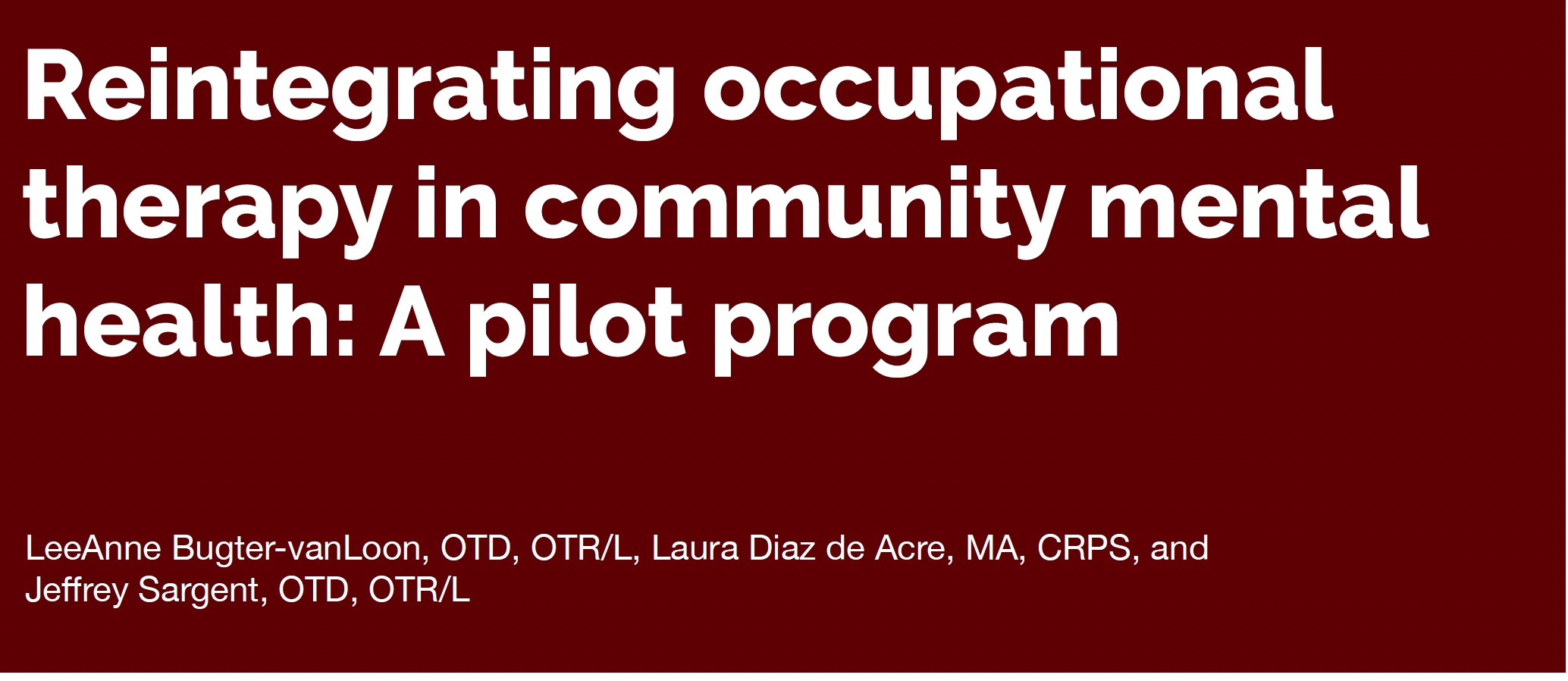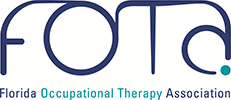Reintegrating occupational therapy in community mental health: a pilot program

Current community-based mental health services in the state of Florida are sparse and focused on targeted areas, such as medication management, psychiatric services, trauma-based support groups, and day programming. Few programs or services facilitate community re-integration, and those that do, rely mainly on peer support services. The current continuum of care is not always able to account for the far-reaching effects of mental health and substance abuse issues and how they create obstacles to daily living and community participation. In Florida, mental health, substance abuse, and co-occurring disorder programs are under strain from a lack of funding. According to the State of Florida Appropriations Committee 2021 Annual Budget, only 7% of the allotted 3.8 billion dollars of funding to the Department of Children and Families is designated for community mental health and substance abuse services (The Florida Senate, 2022). These funds must stretch across all the programs and other related services. Funding for occupational therapy services is largely non-existent in these programs, despite a long history of treating this population. Occupational therapists (OTs) receive specialized education and clinical training to address areas within the continuum of community reintegration for clients experiencing mental health and co-occurring disorders. OTs can apply theory and conceptual models of practice stemming from a rich occupational science history to enable successful improvements in occupational participation and performance.
Dr. LeeAnne Bugter-vanLoon OTD, OTR/L and Dr. Jeffrey Sargent OTD, OTR/L partnered with Mental Health America of Southeast Florida (MHASEFL) to identify possible approaches/models for cost-effective reintegration of occupational therapy in community mental health programming. While working at 9Muses Art Center Power of Peers program (POP), the potential for collaboration between Certified Recovery Peer Specialists (CRPS) and OTs. It was identified that both CRPS and OT utilize similar client-centered, holistic approaches that prioritize client identified goals and self-determining needs when reintegrating back in the community. Through the support and vision of the administration at MHASEFL and 9Muses Art Center, plus the collaboration of occupational therapy and CRPS, a pilot program was developed to improve reintegration outcomes for clients.
The pilot program seeks to demonstrate the distinctive role of occupational therapy in community mental health through collaborative efforts with peer specialists. Certified Recovery Peer Specialists are professionals with mental health and/or substance use experiences who have successfully navigated their recovery and now guide peers in their recovery process following training and professional certification. MHASEFL’s POP program works with individuals leaving mental health inpatient units who face unique challenges with reintegration into the community by partnering them with peer specialists. The POP program was created in response to a lack of available services to help individuals with co-occurring disorders successfully reintegrate into the community following hospitalization.
The role of the occupational therapist in this pilot program will be a supervisory one, collaborating with experienced peer-specialists within the POP program. Existing and new clients within the POP program will have the option to voluntarily work with the occupational therapist. Within this role, the OT will evaluate the client’s occupational participation and performance needs with a focus on successful occupational adaptation within the community. The occupational therapist will further collaborate with the program’s peer specialists and the client to develop a client-centered treatment plan to support a positive experience when reintegrating within the community.
The program is the first of its kind in the state to be publicly funded. Broward’s managing entity, i.e. Broward Behavioral Health Coalition (BBHC), allocates funds from the Florida Department of Children and Families and has committed to funding the pilot program. BBHC’s leadership is excited regarding the possibility of utilizing occupational therapy services toward a vulnerable population that typically does not have access to these services in community mental health. The support from the local community leadership has been overwhelming. Silvia Quintana, the CEO of BBHC, has been a champion for the program and helped the project come to fruition. The project managers look forward to starting this exciting opportunity and contributing to the furtherance of occupational therapy in community mental health. As Paul Jaquith, the CEO of MHASEFL said, “This is an exciting opportunity to take advantage of previously competing skill sets being blended together to the benefit of the people we serve.”
Following the initiation of the pilot program there will be a focus on developing and carrying out quantitative research to support current, as well as future community-based mental health programming. We are very grateful for the support from all the community stakeholders and look forward to providing FOTA members with updates as the program continues.
References
